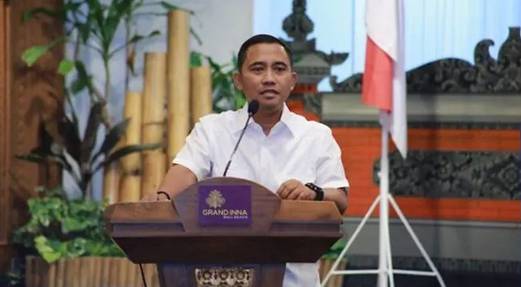
Terrorist cells in Indonesia continue to recruit and plot terror attacks amid COVID-19 pandemic
As Indonesia grapples with the impact of COVID-19, terrorism cells in the country continue to spread radical messages, actively seeking new recruits and plotting their next attacks, a senior counterterrorism official said.
In an exclusive interview with CNA, the National Counter Terrorism Agency’s (BNPT) director for enforcement, Eddy Hartono said although there has been no major terrorist attack during the pandemic, terrorism cells in Indonesia “are not sitting back and relaxing.”
“They are actively recruiting, spreading their ideology, raising funds and conducting training,” the Brigadier General said, adding that the only thing that has slowed during the pandemic is the sending of militants to join the ranks of the Islamic State in Iraq and Syria.
The police’s counterterrorism unit Densus 88 arrested a total of 232 people last year for alleged involvement in terrorism activities.
“They are indeed planning attacks on security officials, state institutions, military and the police,” Mr Hartono said. “Thank goodness we have been able to prevent (these attacks) from happening.”
Among those who were arrested last year were two of Indonesia’s most wanted terrorists Zulkarnaen and Upik Lawanga who have evaded capture for 19 and 14 years respectively.
Zulkarnaen, who goes by one name, was believed to be behind at least three terror attacks, including the 2002 Bali Bombings while Upik Lawanga was suspected of aiding a series of terror attacks between 2004 and 2006. Zulkarnaen was arrested in December and Lawanga was arrested in November.
In 2019, authorities arrested a total of 275 terrorism suspects.
Mr Hartono said during the pandemic, authorities have discovered the presence of bunkers to stash firearms and villas used to train recruits.
Terrorism cells have also raised funds directly from the public through thousands of charity boxes on the pretext of donations for natural disasters, social aid as well as COVID-19 relief efforts.
“The threat (of a terrorism attack) is omnipresent with or without the pandemic,” he said.
The pandemic has seen people avoiding large crowds, public spaces closed and monitored, while houses of worship are greatly reducing their capacity. This may have lowered the possibility of militants targeting them.
Mr Hartono said from some of the suspects arrested, authorities learned that terrorists have been shifting their targets, plotting attacks against security and government officials instead of ordinary civilians.
“As soon as they conducted the planning, we detected them and contained the threat,” he said.
Source: Channel News Asia





